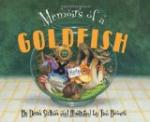I have instanced the study of dates because they are apt to be the storm center of discussions concerning education. It is fashionable to scoff at them in a superior manner. We all of us loathe them; yet they are as indispensable—a certain number of them—as the bones of a body. They make up the skeleton of history. They are the orderly pegs on which we can hang later acquired information. If the pegs are not there the information will fall to the ground.
For example, our entire conception of the Reformation, or of any intellectual or religious movement, might easily turn on whether it preceded or followed the discovery of printing; and our mental picture of any great battle, as well as our opinion of the strategy of the opposing armies, would depend on whether or not gunpowder had been invented at the time. Hence the importance of a knowledge of the dates of the invention of printing and of gunpowder in Europe.
It is ridiculous to allege that there is no minimum of education, to say nothing of culture, which should be required of every intelligent human being if he is to be but a journeyman in society. In an unconvincing defense of our own ignorance we loudly insist that detailed knowledge of any subject is mere pedagogy, a hindrance to clear thinking, a superfluity. We do not say so, to be sure, with respect to knowledge in general; but that is our attitude in regard to any particular subject that may be brought up. Yet to deny the value of special information is tantamount to an assertion of the desirability of general ignorance. It is only the politician who can afford to say: “Wide knowledge is a fatal handicap to forcible expression.”
This is not true of the older countries. In Germany, for instance, a knowledge of natural philosophy, languages and history is insisted on. To the German schoolboy, George Washington is almost as familiar a character as Columbus; but how many American children know anything of Bismarck? The ordinary educated foreigner speaks at least two languages and usually three, is fairly well grounded in science, and is perfectly familiar with ancient and modern history. The American college graduate seems like a child beside him so far as these things are concerned.
We are content to live a hand-to-mouth mental existence on a haphazard diet of newspapers and the lightest novels. We are too lazy to take the trouble either to discipline our minds or to acquire, as adults, the elementary knowledge necessary to enable us to read intelligently even rather superficial books on important questions vitally affecting our own social, physical intellectual or moral existences.
If somebody refers to Huss or Wyclif ten to one we do not know of whom he is talking; the same thing is apt to be true about the draft of the hot-water furnace or the ball and cock of the tank in the bathroom. Inertia and ignorance are the handmaidens of futility. Heaven forbid that we should let anybody discover this aridity of our minds!




